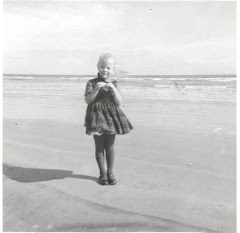One of my beloved Minnesota State Senators, Amy Klobuchar (the other is Al Franken), emailed me today and proudly shared the news that Caramel and Popcorn, the two turkeys up for "pardoning" by President Obama in this annual White House tradition, are from Badger, Minnesota! You can go to the White House website and cast your vote for which turkey you want pardoned, and then post your vote to Facebook and Twitter accounts, too. (Don't worry, they both get to live no matter the vote count--too bad politics doesn't work that way.)
So, here's my beef (pun intended). I like a cute holiday traditions as much as the next person, but I'm also coming to this fresh from multiple events at my university in honor of Native American Heritage Month--one of which was a Winter Clothing Drive for Pine Ridge Reservation.
 On December 29, 1890 in what is now Wounded Knee, South Dakota on the Pine Ridge Reservation, hundreds of Lakota men, women, and children were massacred.
On December 29, 1890 in what is now Wounded Knee, South Dakota on the Pine Ridge Reservation, hundreds of Lakota men, women, and children were massacred. On February 27, 1973 at this same site, hundreds of Lakota and other American Indian Movement (AIM) followers made a 71-day stand to draw attention to the horrible conditions on the Pine Ridge Reservation.
Today, over 40 years later, Pine Ridge remains one of the most impoverished areas of the United States.
For a nation whose story is that we're the land of the free, the world's greatest democracy, the place where anyone can make their dreams a reality if they only work hard enough, I find the way in which we tell the story of our relationship with the original inhabitants of this land particularly shameful.
And, every year at this time, we repeat that shameful behavior by retelling only part of the story--the story of "happy savages" who shared with starving Pilgrims. I don't doubt that that happened since the concept of "givaways" and Potlatches are deeply rooted in many Native American cultures. But, that's not the whole story.
The whole story of our relationship is far more horrifying. It's been a relationship built on lies and disloyalties that regularly culminated in horrifying acts of violence. Treaties made and broken, land was confiscated and never returned (this is still being done today), whole populations of people were relocated to places with which they had no spiritual connection, and women and children were senslessly slaughtered in repeated acts of violence over hundreds of years.
If your formal education was like mine, you've likely learned little of this history.
Have you ever heard of the slaughter of the Lenape by Dutch settlers in 1643 on what is now the island of Manhattan in New York? Neither had I until I heard Steven Newcombe (author of Pagans in the Promised Land: Decoding the Doctrine of Christian Discovery, Fulcrum, 2008) last week. Unarmed men, women and children were slaughtered by the Dutch for not agreeing to pay tax on the land they'd occupied for centuries.
Have you ever heard of the 38 Dakota men who were executed in a mass hanging on December 26, 1862 (the day after Christmas? really?)? Neither had I until I moved to Minnesota where there are many vibrant survivors of these atrocities working to heal their communities by telling this story. For more, watch this remarkable documentary Dakota 38.
And, yes, I understand there was violence on both sides. What I don't understand is our perpetual refusal to tell the more complete history of how we became these United States of America.
I don't intend to set up a rigid either/or here--Thanksgiving, love it or hate it. I simply intend to inspire you to pause and reflect on the very real both/and of this holiday. It is a time of both gratitude and regret, both generosity and miserliness, and both truth and lies (at least of omission).
While I am grateful to take this time every year to give thanks, I also regret that this holiday rarely includes honoring our Native American sisters and brothers. While I appreciate the story of Native American generosity that is retold each Thanksgiving, I'd like to hear the story of white miserlieness as well (unwillingness to cohabit these lands together). While I know some of the truth of this U.S. history, I'm annually troubled by the absence of other stories.
My simple request is this. As you give thanks for the many blessings in your life this Thanksgiving, could you pause for a moment to honor those cultures who lived on these lands, reared their children here, buried their dead here, and still survive to do these things today in spite of systematic efforts to eradicate their cultures and their histories?
Haƞ mitakuyepi. Anpetu de cantewaŝteya nape ciyuzapi ye. (Hello, my relatives. Today I greet you with an open heart).
To learn more
- Watch this PBS documentary We Shall Remain for a more complete history
- Read this NPR story to understand why the term "indian giver" is offensive
- Teach yourself the Dakota language







No comments:
Post a Comment